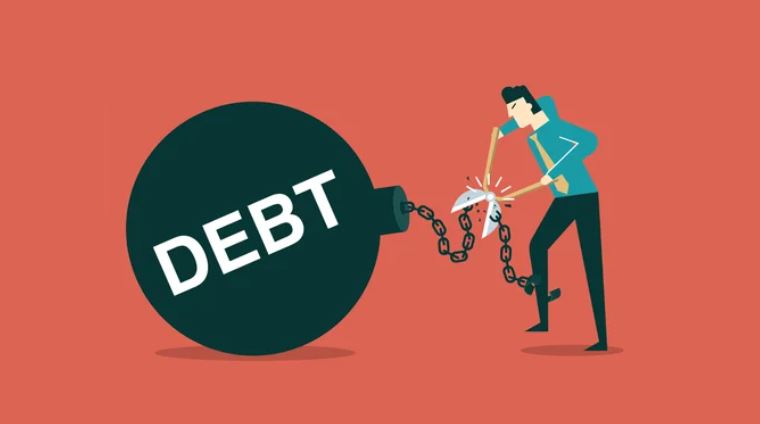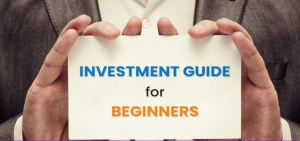Achieving financial freedom and escaping the burden of debt is a goal shared by many individuals. However, the path to becoming debt-free can be challenging and often requires a well-structured plan and unwavering commitment. In this comprehensive guide, we will explore proven methods and strategies to help you effectively manage and ultimately eliminate your debt.
Skale Money Key Takeaways
- Create a Comprehensive Plan: Getting out of debt requires a well-structured plan that involves understanding your debts, creating a budget, prioritizing payments, and exploring strategies such as debt consolidation or balance transfers.
- Increase Income and Reduce Expenses: Accelerate your debt repayment by finding ways to increase your income through side hustles or part-time jobs, and reducing unnecessary expenses to allocate more funds towards your debt payments.
- Leverage Proven Strategies: Implement proven debt repayment strategies like the debt snowball or debt avalanche methods, which can provide a psychological boost and help you stay motivated throughout the process.
- Seek Professional Help When Needed: If you’re facing significant debt or complex financial situations, don’t hesitate to seek guidance from professional financial advisors, credit counselors, or debt management companies. Their expertise can provide valuable insights and tailored solutions.
Table of Contents
How to Get Out of Debt
Categorize Your Debts
The first step in tackling debt is to gain a clear understanding of your financial obligations. Categorize your debts into different types, such as credit card debt, student loans, personal loans, mortgages, and any other outstanding balances. This will provide you with a comprehensive overview of your debt landscape.
Calculate the Total Amount Owed
Once you have categorized your debts, calculate the total amount owed, including principal balances, interest rates, and any associated fees. This information will serve as the foundation for developing an effective repayment strategy tailored to your specific circumstances.
Plan a Repayment Strategy
Create a Budget
Creating a detailed budget is crucial for successful debt repayment. Analyze your income and expenses to identify areas where you can reduce spending and allocate more funds towards debt payments. A well-structured budget will not only help you prioritize your financial obligations but also provide a roadmap for reaching your debt-free goals.
Prioritize Debts
Not all debts are equal, and it is essential to prioritize them based on factors such as interest rates, payment due dates, and potential consequences of missed payments. Generally, it is recommended to focus on high-interest debts first, as they accrue interest at a faster rate, making them more costly in the long run.
Pay more than the minimum payment
Benefits of Paying More
While making minimum payments on your debts may seem like a viable option, it often leads to prolonged repayment periods and higher overall costs due to accrued interest. By paying more than the minimum required amount, you can accelerate the repayment process and potentially save thousands of dollars in interest charges.
Develop a Payment Plan
Develop a payment plan that allocates a specific amount towards each debt, ensuring that you consistently pay more than the minimum required. This plan should be realistic and aligned with your budget, allowing you to make meaningful progress while still meeting your other financial obligations.
Try the debt snowball
What is a Debt Snowball?
The debt snowball method is a popular strategy for debt repayment. It involves prioritizing your debts from the smallest balance to the largest, regardless of interest rates. By focusing on eliminating the smallest debt first, you can experience the psychological motivation of seeing debts paid off one by one.
Steps to Implement Debt Snowball
- List your debts from smallest to largest balance.
- Make minimum payments on all debts except the smallest.
- Allocate any additional funds towards paying off the smallest debt as quickly as possible.
- Once the smallest debt is paid off, roll the payment amount towards the next largest debt, creating a “snowball” effect.
- Repeat this process until all debts are eliminated.
Understand Your Credit History
Check Your Credit Report
Your credit report is a crucial aspect of your financial health and can significantly impact your ability to secure favorable interest rates and loan terms. Regularly monitoring your credit report can help you identify and rectify any errors or discrepancies that may be negatively impacting your credit score.
Improve Your Credit Score
A higher credit score can open doors to better borrowing opportunities and lower interest rates, ultimately saving you money in the long run. To improve your credit score, focus on making timely payments, reducing your credit utilization ratio, and maintaining a diverse mix of credit types.
Make Adjustments to Debt
Debt Consolidation
Debt consolidation involves combining multiple debts into a single loan or payment, often at a lower interest rate than your existing debts. This strategy can simplify your repayment process and potentially reduce the overall interest you pay over time. However, it’s essential to exercise caution and ensure that the consolidation terms are favorable and align with your financial goals.
Balance Transfer Credit Cards
Balance transfer credit cards offer a way to consolidate high-interest credit card debt onto a new card with a lower introductory interest rate, typically lasting between 12 and 18 months. This strategy can provide temporary relief from high-interest charges and allow you to focus on paying down the principal balance more effectively. However, it’s crucial to have a plan in place to pay off the debt before the introductory rate expires.
Increase Payments
Cut Expenses
Reducing your monthly expenses can free up additional funds to allocate towards debt payments. Conduct a thorough review of your budget and identify areas where you can cut back on discretionary spending, such as dining out, entertainment, and subscription services. Even small savings can add up and contribute significantly to your debt repayment efforts.
Earn Extra Income
Exploring ways to generate additional income can accelerate your debt repayment journey. Consider taking on a part-time job, freelancing, or starting a side hustle. Dedicate any extra income solely towards paying down your debts, and watch your balances decline more rapidly.
Reduce Expenses
Create a Budget
As mentioned earlier, creating a detailed budget is crucial for successful debt repayment. By identifying areas where you can reduce expenses, you can free up additional funds to allocate towards your debt payments.
Reduce Unnecessary Expenses
Carefully analyze your budget and identify unnecessary expenses that can be eliminated or reduced. These may include subscriptions, memberships, or luxuries that you can temporarily forgo until your debt is under control.
Consult a Professional Financial Advisor
When to Seek Professional Help
While many individuals can manage their debt repayment on their own, there are situations where seeking professional help can be beneficial. If you’re facing significant debt, struggling with complex financial situations, or considering bankruptcy, consulting a financial advisor or credit counselor can provide valuable guidance and support.
Types of Financial Advisors
There are various types of financial advisors and professionals who can assist with debt management, including certified financial planners, credit counselors, and debt management companies. Research and choose a reputable professional who can provide personalized advice and strategies tailored to your unique circumstances.
Negotiate with Lenders
Hardship Programs
If you’re experiencing financial hardship due to job loss, medical expenses, or other unforeseen circumstances, many lenders offer hardship programs that can provide temporary relief. These programs may include reduced interest rates, deferred payments, or even partial loan forgiveness. Be proactive and communicate your situation to your lenders to explore available options.
Debt Settlement
Debt settlement involves negotiating with creditors to settle outstanding debts for a lump sum amount that is less than the total owed. While this option can provide relief, it can also have a negative impact on your credit score and may result in tax implications for the forgiven debt. Consult with a professional to determine if debt settlement is a suitable option for your specific situation.
The Bottom Line
Getting out of debt requires a comprehensive strategy, discipline, and perseverance. By understanding your debt, prioritizing repayment, increasing income, and seeking professional help when needed, you can effectively navigate the path towards financial freedom. Remember, the journey may be challenging, but the rewards of becoming debt-free are invaluable, providing peace of mind and financial stability for you and your loved ones.
FAQs
How long does it take to get out of debt?
The time it takes to get out of debt varies depending on the amount owed, interest rates, and the repayment strategy employed. Generally, the more aggressive your debt repayment plan, the faster you’ll become debt-free. However, it’s essential to be realistic and consistent with your approach, as rushing too quickly may lead to burnout or financial strain.
Should I use my savings to pay off debt?
Whether to use savings to pay off debt is a personal decision that depends on your individual circumstances. While using savings can help eliminate debt faster, it’s crucial to maintain an emergency fund for unexpected expenses. A general rule of thumb is to keep at least 3-6 months’ worth of living expenses in savings before allocating additional funds towards debt repayment.
Is it better to pay off debt or invest?
The decision to pay off debt or invest depends on the interest rates associated with your debt and the potential returns from investments. Generally, if your debt carries high-interest rates, it’s advisable to prioritize debt repayment over investing, as the interest savings can outweigh potential investment returns. Once your high-interest debt is paid off, you can shift your focus to investing for long-term growth.
Can I negotiate with creditors for lower interest rates or settlements?
Yes, it’s possible to negotiate with creditors for lower interest rates or settlements on outstanding debt. Creditors may be willing to work with you, especially if you can demonstrate financial hardship or a genuine commitment to repaying the debt. However, be prepared to provide documentation and negotiate in good faith.
Will getting out of debt improve my credit score?
Yes, successfully paying off debt can have a positive impact on your credit score. As you pay down balances and maintain a consistent payment history, your credit utilization ratio will improve, and your credit score will gradually increase. However, it’s important to continue practicing good credit habits, such as making payments on time and keeping credit card balances low, to maintain a healthy credit score.
![]()




